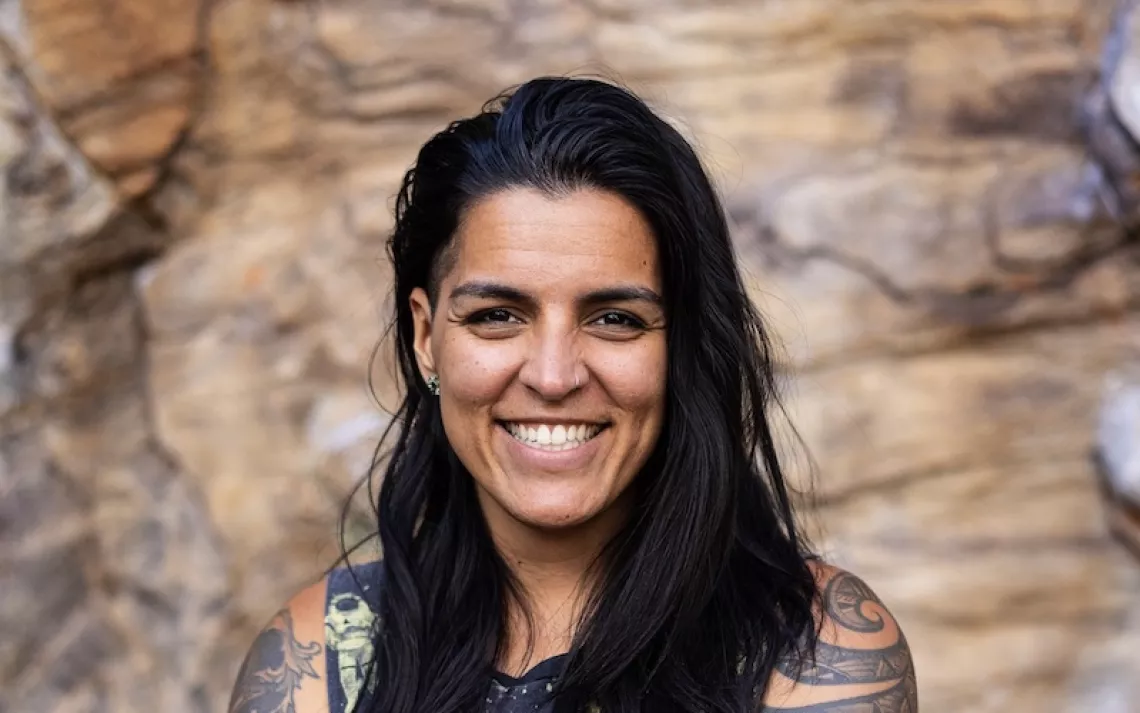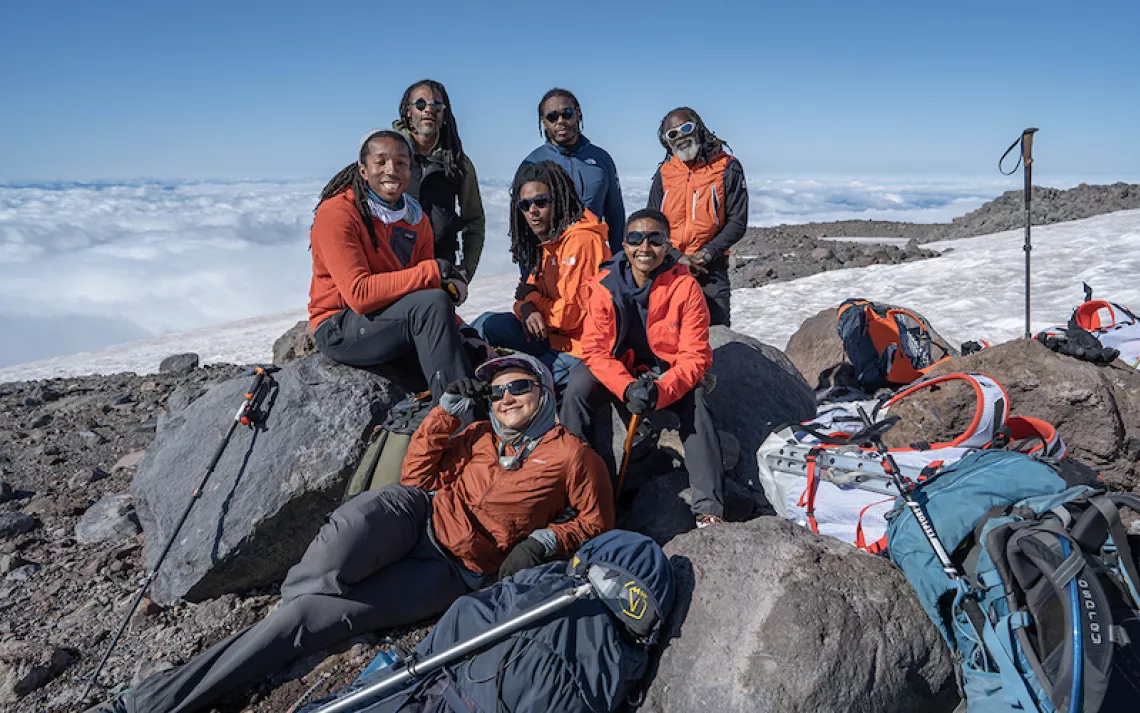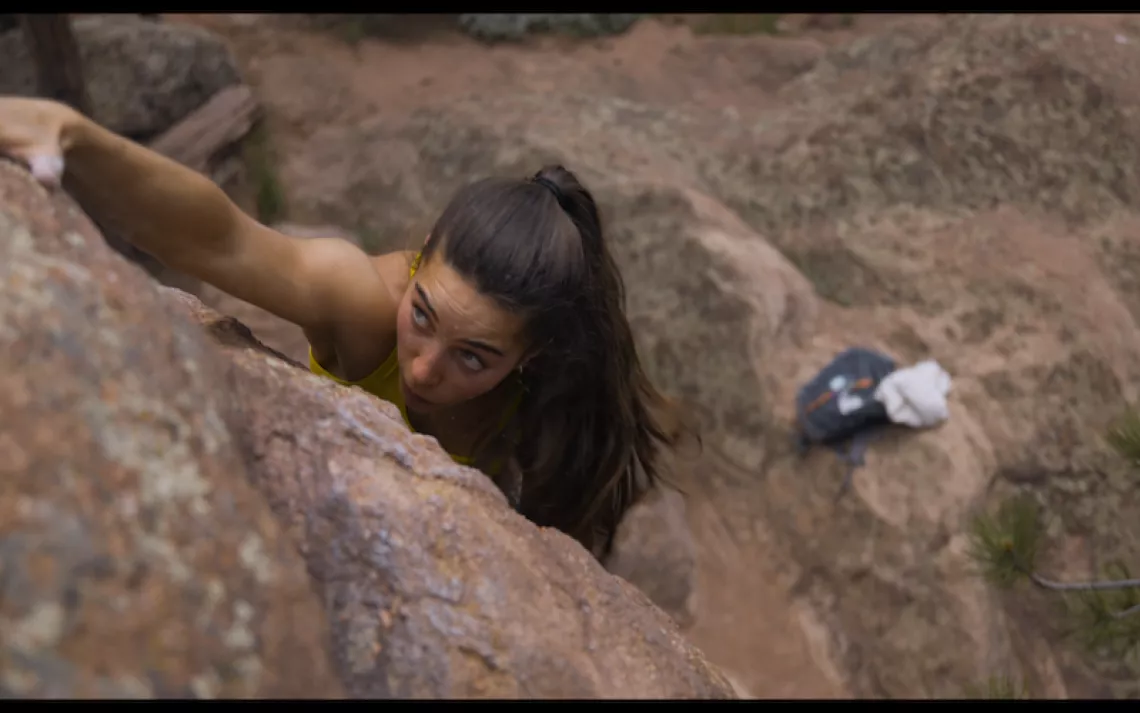Brown Girls #ColorTheCrag and Go Climbing
One Instagrammer’s quest to boost diversity in rock climbing
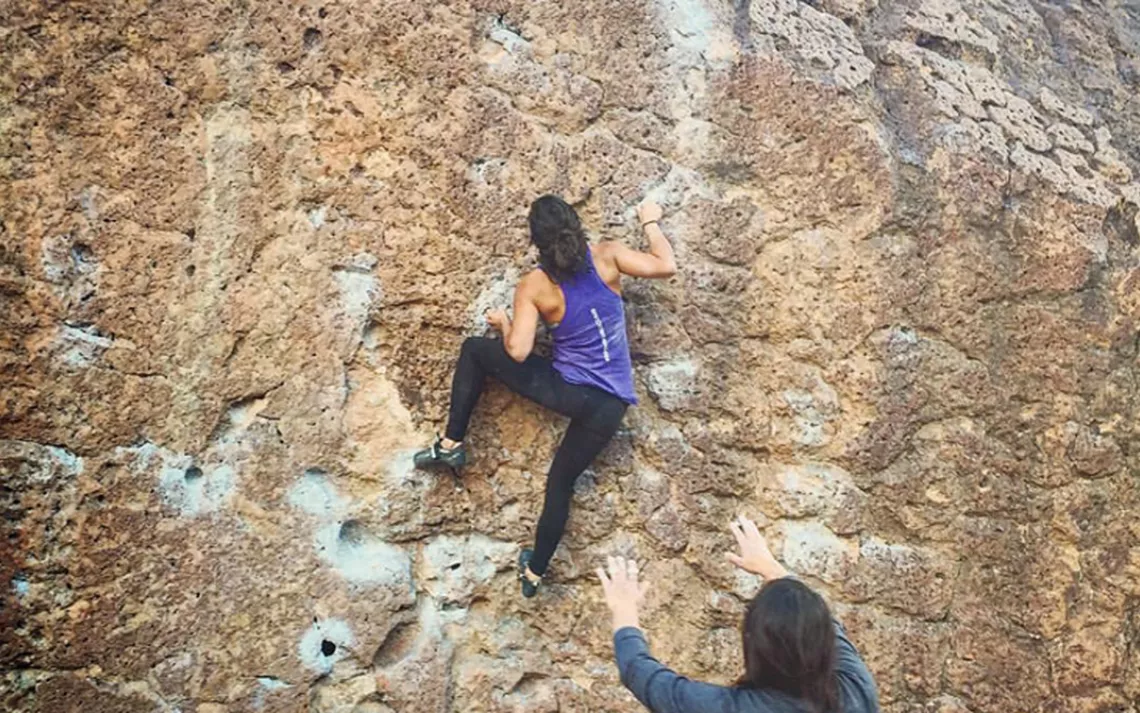
Bethany Lebewitz was in her 20s, had just returned from Ecuador, and was fresh out of a relationship when she decided to take up rock climbing. “The relationship had all these promises of great adventure that never happened,” she said. “I was single and ready to make those adventures happen.”
Lebewitz went to a gym and asked the staff what she could do without a partner. They recommended bouldering. It stuck, and the new sport started to change her in surprising ways.
She had just returned to school. “I was a first-generation college student, and it hadn’t worked out the first time because of money, stress, and all that,” she explained. Going back for her degree was intimidating, but every day in the gym, she proved her strength and resilience. Rock climbing became a tool to navigating difficult routes in all walks of her life.
Lebewitz is from a small town in Texas. “When I meet people and I go back home, rock climbing isn't something many people are familiar with.” When she began climbing in Austin five years ago, there weren’t many other women of color in the gym. She wondered, if this sport had helped her deal with these other issues—issues that many other people of color also have to deal with—shouldn’t there be more diversity in rock climbing?
Last November, Lebewitz started the Instagram account @browngirlsclimb with that question in mind. She spoke with Sierra about the philosophy behind it.
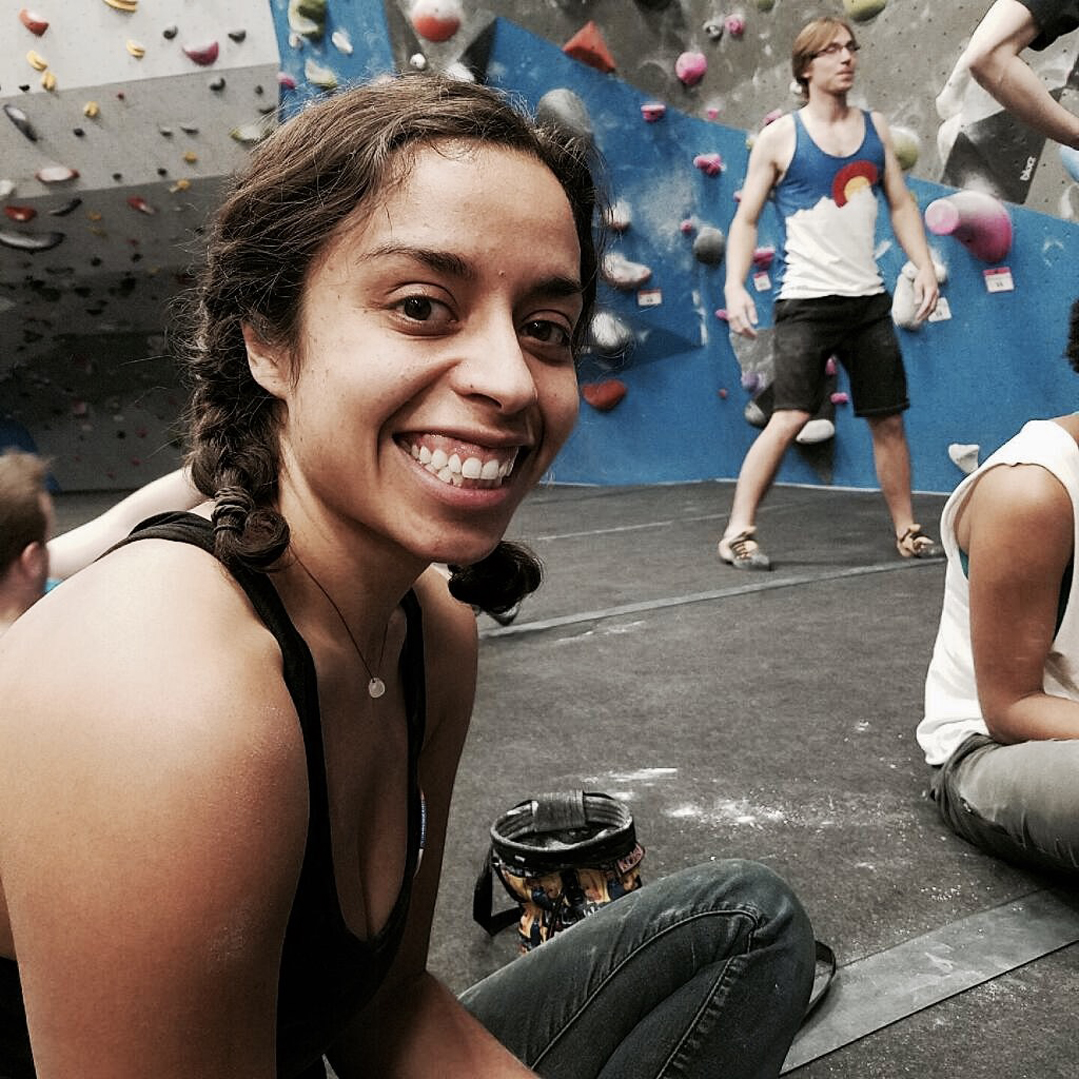 What spurred you to start the account initially?
What spurred you to start the account initially?
Honestly, I wasn’t really sure how Instagram worked. I was like, “I want to do this, but do I have to make my own profile? Can I make this page where people can come and share stuff?” I know that’s probably not the romantic story, but that’s really how it came about. I spoke to some of my friends and decided to put a few of my photos on there and include the hashtags #browngirlsclimb and #colorthecrag. It just kind of caught on. I really didn’t have any intention of it being bigger than some of my friends and me.
It’s hard to put yourself out there and be vulnerable to critique or criticism or questioning of your story. I wanted to start with something small. I exist in the climbing community. It’s something that I’ve done for five years now. I didn’t really see diversity in climbing being supported. But I also wasn’t on Instagram before this. Obviously, Brothers of Climbing, Outdoor Afro, Latino Outdoors, Melaninbasecamp—they’re all great communities to be a part of.
Brown Girls Climb (BGC) has opened up a lot of doors for me. Just to find those resources for myself and also to pave a way for me to encourage other people. I’ll post pictures of myself and my friends and share the world that I live in. People seem excited about it and have been sharing their worlds, too. So it’s been a great dialogue to me.
What message do you hope to share with people of color and climbers?
Climbing for me started as a way for me to empower myself and teach myself that I am strong enough. That I can do something. That I’m capable. I have anxiety, and being in school, knowing that I’d already faced failure, knowing that a whole generation of my family hadn’t gone to school—it can be a lot of pressure. Going to school is hard for anybody. Climbing was helpful to use as a tool to get through that. And it still is, in different ways and different challenges.
If certain populations are dealing with more struggles or challenges in their lives, why wouldn’t we share some of our tools for getting through that stuff? That’s the approach that I’m coming at it with. This is something that is useful for me and it gives me joy. It reminds me that I’m going to fail, and I’m going to grow, and I’m going to progress. And you get to do something different and see yourself with new powers. Maybe it’ll make it easier for you to go get your degree or your master's or go do whatever. Because you just did something you never thought you would be able to do.
I want to share that with people. It’s not going to work for everybody, but people may find community in it, they may find encouragement, and that’s what I want to share. That’s a great blessing to me.
So how do you share that through BGC? You highlight different climbers, right?
I’m so excited to meet the women who are excited about BGC and about the community. I don’t really pick that much in terms of who I highlight, but I do try to ask questions that are going to bring out a little bit of their personal life. I think sharing our backgrounds and day-to-day and the struggles we have, whether it’s our other identities or just training fails, whatever, is important.
We go through plateaus in life, and we go through plateaus in climbing. It’s nice to know that other people are there. Also, when I started climbing at 24, I didn’t really see a lot of stories being told about older women who were starting to do it. I saw men starting later, but their body composition is totally different anyway. And with POC climbers, a lot of them are starting later because of access, popularity, and other factors.
That story and intersection of age and culture is a really cool place I like to hang out at dialogue-wise. You know, you’re 26 or 28, maybe you have a kid and you’re climbing. How do you stay motivated? You’re like, “This may be my peak.” But it’s not. There are other women climbing and figuring out ways to deal with family stuff, or age stuff, or cultural stuff. We’ve got a lot going on in our country right now. Those things don’t go away when we walk into a gym or when we go climbing at the crag. Those issues carry through. It’s helpful to keep that dialogue open and to feature those stories.
What are your goals for the future, for BGC or otherwise?
My number one priority is going back home and sharing this with my community. If I could go back, host an event over there, share the resources I’ve found with Outdoor Afro, Latino Outdoors, these other groups, that’d be so great. This for me would be a total success.
Where we come from—if it’s a community of color, lower income, lower resources—how can we go back there? What does that responsibility look like for the people who leave that city or that town? And I don’t have the answer for anybody, but if anybody does feel like they should go back, then I really encourage them to.
Beyond that, I’m considering filing as a nonprofit to see how that grows. Can we do scholarships, whether climbing or academic? I mean those are all kind of in the future and way beyond my expertise. I’m trying to let this grow naturally and organically and let the women that are part of it shape the way that it should grow. Because I’m only one person.
Lebewitz currently lives in D.C. where she works as a research technician at a child psychology lab. Brown Girls Climb is collaborating with Brothers of Climbing to host the first people of color climbing festival next fall in Alabama.
This article has been updated since publication.
 The Magazine of The Sierra Club
The Magazine of The Sierra Club

